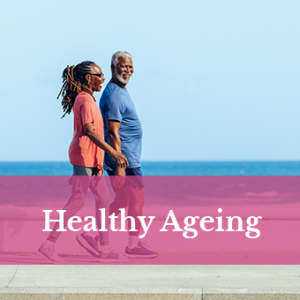
Muscle Mass Loss, Handgrip Strength, and Fall Risk in Community-Dwelling Older Adults in Angola: A Cross-Sectional Study
Presenter(s):
Rita de Santa Bárbara; Silvana Rocha da Silveira; Antonio Bento, Universidade Privada de Angola, Angola
Abstract
Introduction:
Sarcopenia, defined as the progressive and generalized loss of skeletal muscle mass and strength, is a key contributor to frailty, decreased functionality, and increased risk of falls in older adults. In sub-Saharan Africa, including Angola, data on sarcopenia remain limited, hindering the development of effective preventive and rehabilitative strategies.
Objective:
To evaluate sociodemographic characteristics, handgrip strength, calf circumference, and functional mobility (fall risk) in older adults living in a community in Luanda, Angola.
Methods:
A cross-sectional observational study was conducted in the São João Paulo II community, Talatona, involving 40 participants aged ≥60 years. Data collection included sociodemographic questionnaires and physical assessments: calf circumference (CC), handgrip strength using a Saehan® dynamometer, and the Timed Up and Go (TUG) test. Sarcopenia was classified according to the EWGSOP2 criteria. Descriptive statistics, t-tests, Pearson’s correlation, and ROC curve analysis were performed using SPSS (p < 0.05).
Results:
Sarcopenia was identified in 50% of participants, with a higher prevalence among women (31.25%) compared to men (18.75%). Severe sarcopenia affected 27.5% of the total sample. Calf circumference was significantly reduced with age in both sexes (p = 0.013 for men; p = 0.028 for women), with women showing more pronounced muscle loss. TUG performance declined with age, with a moderate positive correlation between age and TUG time (r = 0.42 in men; r = 0.51 in women; p < 0.05), indicating increased fall risk. Handgrip strength also declined in older age groups, with significant differences between sexes observed in the 60–69 age group.
Conclusion:
This study highlights a high burden of sarcopenia and reduced functional capacity among older adults in Angola, particularly among women. The observed correlations between muscle mass, strength, and functional mobility underscore the importance of early detection and community-level screening. Implementing low-cost functional assessments led by physiotherapists may aid in fall prevention and support healthier aging in low-resource settings.
Keywords: Sarcopenia, Handgrip Strength, Functional Mobility, Falls
Bio(s):
PhD candidate in Rehabilitation Sciences, university professor, and current head of the Department of Physiotherapy at the Universidade Privada de Angola. She works in the training of physiotherapists and in the organization of academic and clinical programs focused on the care of critically ill patients, functional rehabilitation, and elderly care. She leads initiatives aligned with the Decade of Healthy Ageing (2021–2030) by the World Health Organization, with an emphasis on promoting functionality, preventing disability, and implementing integrated, person-centered care.
Her areas of interest include respiratory physiotherapy, functional ageing, multidimensional assessment, intensive care rehabilitation, interprofessional education, and the cross-cultural validation of clinical instruments. She conducts research that adapts assessment tools to the African context and promotes interdisciplinary investigations addressing the specific needs of the Angolan population, with a strong focus on functionality.
